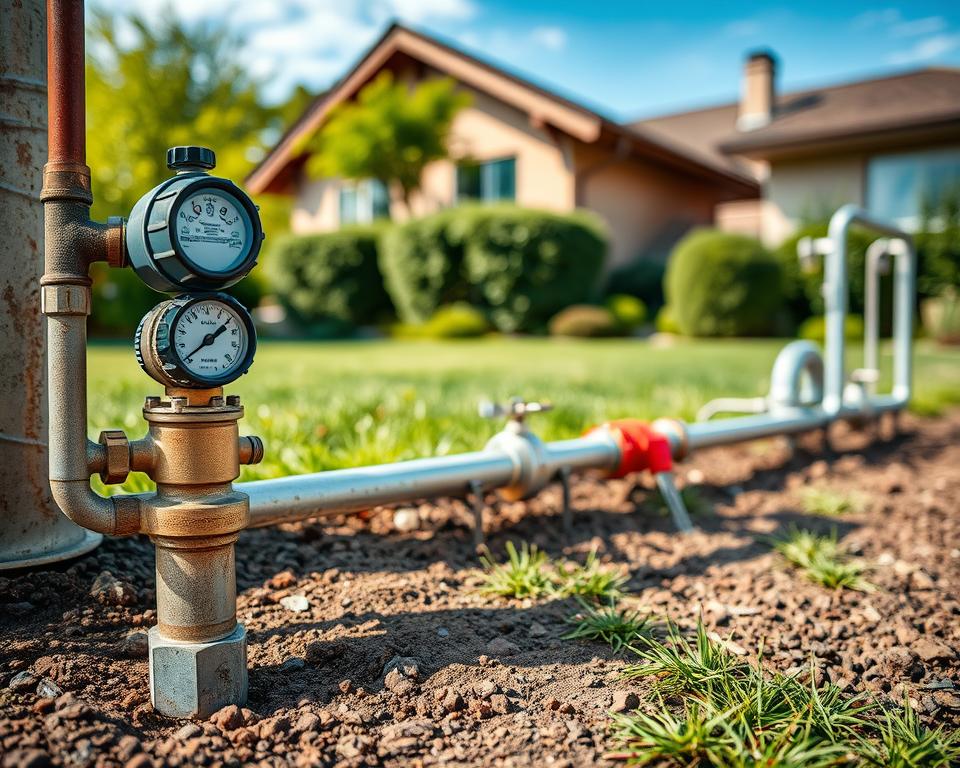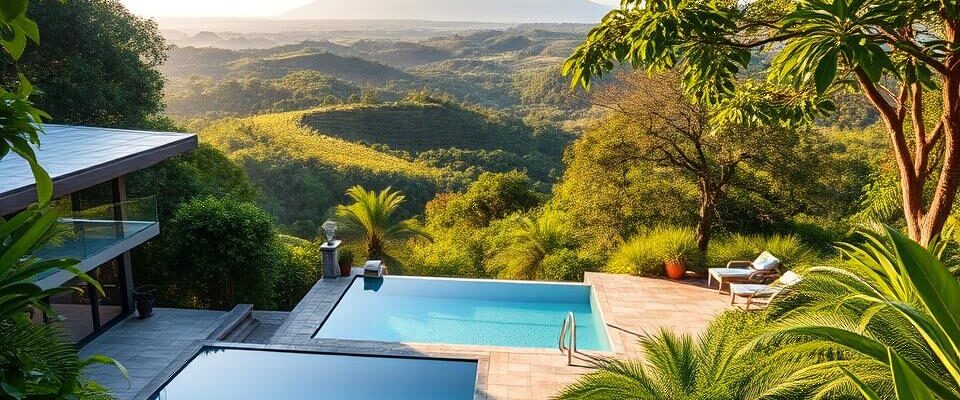Home Buying Checklist in Costa Rica: Our Expert Tips
Over the past three years, foreign investment in Costa Rica’s real estate has surged by more than 30 percent, according to the Costa Rican Chamber of Real Estate Brokers. At Gap Real Estate (Grupo Gap LLC SRL), we simplify the process of buying property in Costa Rica, leveraging our coast-to-coast experience to guide you through a seamless transaction.
With over two decades of experience in Costa Rican real estate, we’ve seen firsthand the challenges that come with purchasing property in a foreign country, from navigating different legal systems to overcoming language barriers. Our comprehensive home buying checklist is designed to address these unique challenges, ensuring that your investment is secure and your tropical dream home becomes a reality.
We’ll walk you through the essential steps, from initial considerations to post-purchase requirements, helping you make informed decisions throughout your Costa Rican property journey.
Why Costa Rica Is a Prime Real Estate Destination
With its exceptional lifestyle, political stability, and economic growth, Costa Rica stands out as a prime location for real estate investment. The country’s unique blend of rich biodiversity, scenic environments, and robust legal protections for private property makes it an attractive destination for international buyers.
Political Stability and Foreign Investment Growth
Costa Rica offers a secure environment for foreign investment, thanks to its long-standing political stability and democratic government. Since 1949, the country has maintained a stable democracy without a standing army, fostering confidence among international investors.
- Foreign investment in Costa Rican real estate has seen significant growth, exceeding 30% in the past three years.
- The country’s commitment to environmental protection preserves its natural beauty, enhancing property values.
- Infrastructure improvements, including upgraded highways and expanding fiber-optic internet, boost property values and rental potential.
Equal Property Rights for Foreigners
Costa Rica grants equal property rights to foreigners under the “fee simple” title, ensuring complete ownership with the same legal protections as Costa Rican citizens. This legal structure, combined with affordable property taxes and a relatively low cost of living, makes Costa Rica particularly appealing to retirees and investors.
- Costa Rica’s diverse real estate options range from beachfront properties to mountain retreats.
- The country’s healthcare system, ranked higher than the United States by the World Health Organization, provides access to quality medical care.
Essential Pre-Purchase Considerations
To navigate the Costa Rican property market effectively, buyers must be informed about critical pre-purchase factors. Understanding these elements will help you make a well-informed decision when investing in Costa Rican real estate.
Location Factors: Beach vs. Mountain vs. Urban Properties
Before beginning your property search in Costa Rica, carefully consider your lifestyle preferences and investment goals to determine the ideal location. Coastal areas offer tourism potential but come with maritime regulations, while mountain regions provide cooler climates and privacy. Urban areas, on the other hand, offer convenience and amenities.
Understanding Maritime Zone Regulations
Maritime Zone regulations are critical to understand when considering beachfront property in Costa Rica. The first 50 meters from high tide are public land that cannot be privately owned, while the next 150 meters require special concessions and often Costa Rican corporation ownership.
Working with Licensed Professionals
Working with licensed real estate professionals is essential in Costa Rica, where the market is less regulated than in North America. Look for agents affiliated with recognized organizations like the Costa Rica Global Association of Realtors (CRGAR) to ensure you’re working with a qualified expert.

Other key considerations include evaluating climate variations, researching local municipalities and their development plans, and assessing accessibility factors such as proximity to international airports and quality of access roads. Additionally, it’s crucial to evaluate water sources carefully and consider engaging both a real estate attorney and a separate buying agent to protect your interests throughout the transaction process.
Complete Home Buying Checklist in Costa Rica
When buying a home in Costa Rica, having a comprehensive checklist is crucial for a smooth transaction. This checklist will guide you through the essential steps of property documentation verification, financial preparation, and legal representation requirements, ensuring that your investment is secure and your purchase process is hassle-free.
Property Documentation Verification
Verifying property documentation is a critical step in the home-buying process. Your attorney will conduct a comprehensive title search (estudio registral) through the National Registry to confirm a clean title, boundary accuracy, and absence of liens or encumbrances.
- Confirm that all property taxes (impuestos de bienes inmuebles) are current.
- Verify that the seller has paid the luxury home tax (impuesto solidario) if applicable.
- Ensure that all construction on the property has proper permits and complies with local zoning regulations.
Title Search and Survey Maps
A thorough title search and accurate survey maps are vital for understanding the property’s legal status and physical boundaries.
Tax Status and Permits
Understanding the tax status and ensuring that all necessary permits are in place will prevent future legal issues.
Financial Preparation
Financial preparation is key to a successful home purchase. Understanding all closing costs, which typically total 3.5-4% of the purchase price, is essential.
- Transfer taxes (1.5%), legal fees (1-2%), and registration fees are part of the closing costs.
- Explore financing options available for foreigners, including cash payments, seller financing, and local bank loans.
Closing Costs and Taxes
Being aware of the closing costs and taxes involved in buying a property in Costa Rica will help you budget accordingly.
Financing Options for Foreigners
While mortgage options for foreigners are limited, understanding the available financing choices will aid in making an informed decision.
Legal Representation Requirements
Legal representation is not optional but essential in Costa Rica’s real estate transactions. An experienced attorney will represent you at closing and ensure proper registration of the property transfer.
- The closing process requires a Notary Public to draft the transfer deed (escritura) and register it with the National Registry.
- Consider establishing a Costa Rican corporation to hold the property for potential tax advantages and simplified inheritance.
By following this comprehensive home buying checklist in Costa Rica, you’ll be well-prepared to navigate the complexities of the real estate market and enjoy your new property with confidence.
Thorough Property Inspection Guide
A detailed property inspection is essential for making an informed purchase decision in Costa Rica. Given the country’s unique geography and construction practices, a thorough inspection can reveal potential issues that may not be immediately apparent.
Structural Quality Assessment
Assessing the structural quality of a property is critical, especially in Costa Rica’s earthquake-prone regions. Look for signs of cracks, water damage, and settlement issues that could indicate poor construction practices. Ensuring that the property is built with proper reinforcement is vital for its durability and safety.
Energy Efficiency Evaluation
Energy efficiency is a crucial aspect of property inspection in Costa Rica, where electricity costs are high and tiered. Inspecting windows and doors for proper sealing is essential, as single-pane aluminum windows can significantly impact cooling costs. Evaluating ventilation systems, ceiling heights, and airflow patterns can also help in identifying natural cooling solutions.
Windows and Doors
Check for proper sealing and consider the type of windows used. Single-pane aluminum windows are common but may not provide the best insulation.
Insulation and Ventilation
Costa Rican construction rarely includes insulation, so evaluating ventilation systems and airflow patterns is crucial for energy efficiency.
Electrical Systems Verification
Verifying the electrical system’s capacity, condition, and grounding is essential. Costa Rican electrical codes exist, but their enforcement varies, making it crucial to inspect the breaker box and wiring.
Plumbing and Water Supply Inspection
Inspecting the plumbing and water supply system is vital. Verify water pressure, check for leaks, and identify the water source. For properties with septic systems, verify the location, age, and condition of the tank and drainage field.
Documenting all inspection findings and requesting repairs or price adjustments before closing is crucial. Since Costa Rica has no mandatory seller disclosures, the burden of discovery falls entirely on the buyer.
Essential Utilities and Systems Checklist
Evaluating the utilities and systems of a property is a critical step in the home-buying process in Costa Rica. Ensuring that these essential services are functioning properly can save you from potential headaches and costly repairs down the line.
Water Supply and Septic Systems
Water supply systems in Costa Rica vary significantly by location. It’s essential to verify the water source, whether it’s municipal, a private well, a community system, or rainwater collection, and assess its reliability during the dry season. Understanding if there are backup systems like cisterns or tanks in place is crucial.
Most properties in Costa Rica use septic systems rather than municipal sewage. Checking for proper installation, including access ports for maintenance and adequate drainage fields, is vital. Signs of system failure, such as soggy areas or odors, should be investigated. For instance, if you’re advised to dispose of toilet paper in a wastebasket, it may indicate an inadequate septic system.

Electrical Wiring and Backup Power
Costa Rica’s electrical wiring standards may differ from those in North America. Verifying that the property has adequate amperage, proper grounding, and circuit breakers is necessary. Given that power outages are common, especially during the rainy season, considering backup power solutions like generators or battery systems is prudent.
Internet Connectivity and Communications
Internet connectivity varies dramatically across Costa Rica, with fiber optic available in urban areas and some coastal towns, while rural properties may rely on wireless systems. Testing actual internet speeds and verifying cell phone coverage with your specific carrier on-site is essential to ensure reliable communication.
Post-Purchase Property Information List
The moment you complete the purchase of your Costa Rican property, a new phase begins. As you transition into your new home, having the right information is crucial for a smooth living experience.

Critical Property Information to Request from Sellers
After purchasing your Costa Rican property, it’s vital to create a comprehensive information list. Request that the seller identify the location of critical systems, including the main water shutoff valves for both cold and hot water, the main electrical breaker box, and septic tank access points. Documenting the maintenance history of major systems is also essential, including when the septic tank was last cleaned and any recurring maintenance issues the previous owner experienced.
Understanding the water systems in your property is particularly important in Costa Rica, where water supply can vary. Ensure you know how water pumps, pressure tanks, and reserve systems function, especially during power outages or dry seasons. Request all security information, including alarm codes and electric gate operations.
Important Contact Information for Service Providers
Compile contact information for essential service providers familiar with your property, such as plumbers, electricians, and appliance repair technicians. Gather information about local services, including garbage collection schedules and recycling options. For properties in developments or condominiums, obtain contact information for the administrator and copies of bylaws and recent financial statements.
Request copies of any warranties still in effect for appliances, roofing, or other home systems. If your property has unique features like solar systems or water purification equipment, ask for detailed operating instructions and maintenance requirements. This information will be invaluable for your maintenance and upkeep of the property.
Common Pitfalls When Buying Property in Costa Rica
While Costa Rica is a prime destination for property investment, several common errors can be costly. Buyers must be aware of these potential pitfalls to ensure a successful and stress-free transaction.
Neglecting Due Diligence
One of the most frequent mistakes is neglecting proper due diligence. This includes verifying that the title is clean, ensuring the property is properly zoned, and confirming that any structures are permitted and legally built. A thorough inspection is crucial to avoid costly surprises.
Misunderstanding Maritime Zone Regulations
Purchasing beachfront property without understanding concession laws can lead to legal complications. The first 50 meters from high tide is public land, and the next 150 meters requires special concession rights. Working with professionals familiar with coastal property laws is essential.
Language Barriers and Documentation Issues
Language differences can create confusion, as all official documents must be in Spanish. Working with bilingual attorneys and agents is essential to avoid misunderstandings. Buyers should never rely on verbal agreements or informal “handshake” deals, which are not legally binding.
- Neglecting thorough due diligence can lead to issues with property titles, permits, and boundaries.
- Misunderstanding maritime zone regulations can result in problematic investments, especially for beachfront properties.
- Language barriers can lead to misunderstandings of critical terms and conditions in legal documents.
Why Choose Gap Real Estate as Your Trusted Partner
At Gap Real Estate, we pride ourselves on being your trusted partner in navigating Costa Rica’s real estate market. With over two decades of coast-to-coast experience, we deliver seamless transactions through expert guidance, clear communication, and relentless dedication to your goals.
Our deep local knowledge allows you to navigate Costa Rica’s market confidently. We provide end-to-end support, handling complexities so you don’t have to, from relocation logistics to legal details. Our results-driven service prioritizes your success, whether it’s finding your dream home or securing a strategic investment.
- Unparalleled local knowledge and expertise across all regions of Costa Rica
- Comprehensive support throughout your property journey
- Relationships maintained with clients long after closing for property management and rental services
- Extensive network of trusted professionals for quality service
- Specialized guidance on navigating unique challenges for foreign buyers
We simplify buying, selling, or investing in Costa Rica, ensuring clarity, confidence, and a stress-free experience. Our multilingual team ensures clear communication, and we offer specialized insurance guidance for foreign property owners.
Conclusion
The journey to owning a home in Costa Rica involves several critical steps, which our comprehensive checklist helps you navigate with ease.
Our home buying checklist for Costa Rica covers every aspect of the purchase process, from initial property selection to post-purchase considerations. Successful property ownership requires thorough due diligence and proper legal representation.
By working with experienced professionals like Gap Real Estate, you can ensure a stress-free experience. Contact us through our website, by phone or WhatsApp (+5064001-6413), or by email ([email protected]) to take advantage of our local expertise.




